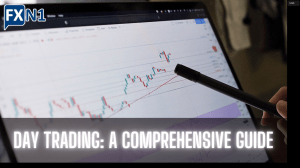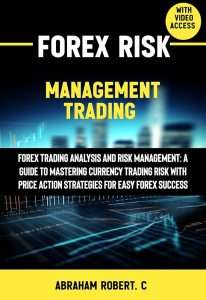Is Forex Trading a Scam? A Comprehensive Guide
Is forex trading a scam? Learn the reality behind the hype. Discover the risks and rewards, and decide if forex trading aligns with your financial goals. Avoid costly mistakes!
The question‚ “Is forex trading a scam?” is a common one‚ often fueled by misleading advertisements and horror stories. The truth‚ however‚ is far more nuanced. Forex trading‚ like any market‚ presents both significant opportunities and substantial risks. Understanding these nuances is crucial to determining whether it’s a suitable venture for you‚ and equally important to avoiding common pitfalls.
Understanding the Forex Market
The foreign exchange market (forex or FX) is a global decentralized market for exchanging national currencies. It’s the largest and most liquid market in the world‚ with trillions of dollars traded daily. Unlike stock markets which operate on centralized exchanges‚ forex operates 24 hours a day‚ five days a week‚ across multiple time zones. This accessibility contributes to its allure but also increases the potential for rapid losses if not approached strategically.
Trading involves speculating on the price movements of currency pairs. For example‚ EUR/USD represents the exchange rate between the Euro and the US dollar. Traders profit when they correctly predict whether the value of one currency will rise or fall against another. This seemingly simple premise belies a complex market requiring significant knowledge and skill to navigate successfully.
The Mechanics of Forex Trading
Forex trading typically involves using leverage‚ which allows traders to control larger positions than their initial capital would normally permit; While leverage amplifies potential profits‚ it also significantly magnifies potential losses. A small adverse movement can wipe out an entire trading account if proper risk management isn’t implemented. Understanding leverage is fundamental to responsible forex trading.
Traders utilize various technical and fundamental analysis tools to predict price movements. Technical analysis focuses on charts and historical price data to identify patterns and trends. Fundamental analysis involves examining economic indicators‚ political events‚ and other factors that might influence currency values. A successful trader often combines both approaches.
Regulation and Legitimate Brokers
The forex market is not without regulation. Many countries have regulatory bodies overseeing forex brokers and ensuring they operate within defined parameters. It is crucial to choose a broker regulated by a reputable authority in your jurisdiction. Unregulated brokers pose a significantly higher risk‚ as they are less accountable for their actions.
Choosing a reputable broker is a critical first step in mitigating the risk of scams. Research thoroughly‚ check for licenses‚ and read reviews before entrusting your funds to any broker. A licensed and regulated broker is far less likely to engage in fraudulent activities.
Why the “Forex Scam” Perception Exists
The perception that forex trading is a scam often stems from several factors. Unscrupulous marketing tactics‚ promising unrealistic returns and guaranteed profits‚ are rampant. These schemes prey on individuals seeking quick riches‚ ultimately leading to significant financial losses.
Many novice traders enter the market unprepared. Without sufficient education and understanding of risk management‚ they are highly vulnerable to losses. This lack of preparedness‚ coupled with unrealistic expectations‚ fuels the misconception that the entire market is fraudulent.
Furthermore‚ the decentralized and global nature of the forex market makes it difficult to regulate effectively in every corner of the world. This lack of uniform regulation creates opportunities for fraudulent activities‚ reinforcing the negative perception.
Avoiding Forex Scams: A Practical Guide
While the forex market presents inherent risks‚ it is not inherently a scam. However‚ avoiding scams requires diligence and a practical approach. This section outlines key steps to protect yourself from fraudulent schemes.
- Thorough Research: Investigate any broker or trading opportunity thoroughly before investing; Check for regulatory licenses‚ read independent reviews‚ and be wary of promises of guaranteed returns.
- Education is Key: Invest time in learning about forex trading. Understanding fundamental and technical analysis‚ risk management‚ and leverage is crucial to successful trading.
- Start Small: Begin with a small amount of capital you can afford to lose. This allows you to gain experience and test your strategies without risking significant funds.
- Demo Accounts: Practice on a demo account before trading with real money. This provides a risk-free environment to learn and refine your trading skills.
- Diversify Investments: Never invest all your funds in a single trade or broker. Diversification helps spread risk and mitigate potential losses.
- Beware of High-Pressure Sales Tactics: Legitimate brokers won’t pressure you into making hasty investment decisions.
Managing Risk in Forex Trading
Risk management is paramount in forex trading. It involves strategies and techniques designed to limit potential losses and protect your capital. Without effective risk management‚ even the most skilled traders can face significant setbacks.
One crucial aspect of risk management is setting stop-loss orders. These orders automatically close a trade if the price moves against you by a predetermined amount. This helps limit potential losses to a manageable level.
Another important strategy is position sizing. This involves determining how much capital to allocate to each trade‚ considering your overall risk tolerance. Never risk more than a small percentage of your capital on any single trade.
The Importance of Emotional Discipline
Emotional discipline is often overlooked but is crucial for successful forex trading. Fear and greed can cloud judgment and lead to impulsive decisions‚ often resulting in losses. Developing a disciplined approach‚ based on your trading plan‚ is essential to long-term success.
The Reality of Forex Trading: Opportunities and Challenges
The forex market presents both significant opportunities and considerable challenges. The potential for high returns is a major attraction‚ but this is balanced by the substantial risk of losses. Success requires dedication‚ discipline‚ and a deep understanding of the market.
Many successful forex traders utilize sophisticated strategies‚ combining technical and fundamental analysis with effective risk management. They understand the importance of continuous learning and adaptation to changing market conditions. It’s a demanding field requiring patience‚ persistence‚ and a commitment to ongoing education.
The path to profitability in forex trading is rarely quick or easy. It requires consistent effort‚ a willingness to learn from mistakes‚ and a realistic understanding of the inherent risks involved. It is not a get-rich-quick scheme; rather‚ it is a potentially rewarding endeavor for those willing to dedicate the necessary time and effort.
- Continuous learning and adaptation are essential for success in this dynamic market.
- Effective risk management is crucial to protecting your capital and ensuring long-term sustainability.
- Emotional discipline is paramount in avoiding impulsive decisions driven by fear or greed.
Forex trading offers a unique opportunity to participate in a global market with high liquidity and potential for significant returns. However‚ it’s crucial to approach it with realism‚ education‚ and a commitment to responsible trading practices. By understanding the risks and implementing effective strategies‚ you can increase your chances of success and avoid the pitfalls of fraudulent schemes. Remember that consistent profitability requires dedication‚ discipline‚ and a continuous learning process. Success in forex trading is not guaranteed‚ and losses are a possibility. However‚ with careful planning and a responsible approach‚ the challenges can be overcome‚ paving the way for potentially rewarding outcomes.
The perception that forex trading is a scam is largely fueled by misleading marketing and a lack of proper education. By understanding the market dynamics‚ choosing regulated brokers‚ and implementing effective risk management strategies‚ you can mitigate the risks and navigate this complex market successfully. It’s a journey that requires dedication‚ patience‚ and continuous learning‚ but the potential rewards can be substantial for those who approach it with the right mindset and preparation. The allure of quick riches is often a deceptive trap; instead‚ focus on building a sustainable trading strategy based on knowledge‚ discipline‚ and realistic expectations.
Thorough research‚ responsible trading‚ and a commitment to learning are essential for navigating the forex market safely and effectively. Avoid get-rich-quick schemes‚ and always prioritize your financial security. While potential profits are significant‚ so too are the potential losses‚ and a balanced perspective is necessary for long-term success. Remember to never invest more than you can afford to lose.
Ultimately‚ the success of any forex trading endeavor depends heavily on the individual trader’s knowledge‚ skills‚ and discipline. It is not a passive investment; it requires active participation‚ continuous learning‚ and a realistic understanding of the inherent risks. By approaching forex trading with a responsible and informed mindset‚ you can significantly reduce your exposure to scams and increase your chances of achieving your financial goals.
Therefore‚ while the question “Is forex trading a scam?” often arises‚ the answer is far more complex than a simple yes or no. It’s a market with both potential and peril‚ and the ultimate outcome hinges on the individual trader’s preparedness‚ discipline‚ and responsible approach. The key is to educate yourself‚ manage risk effectively‚ and avoid misleading promises of easy riches.







